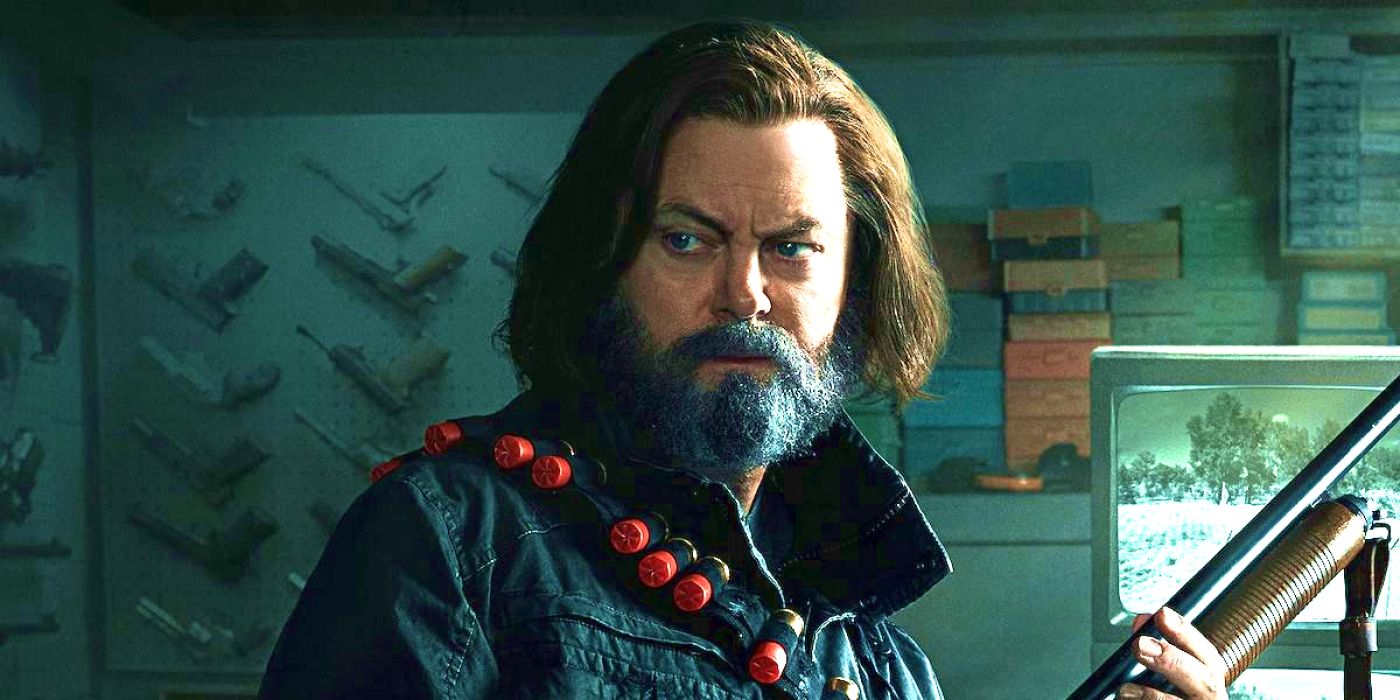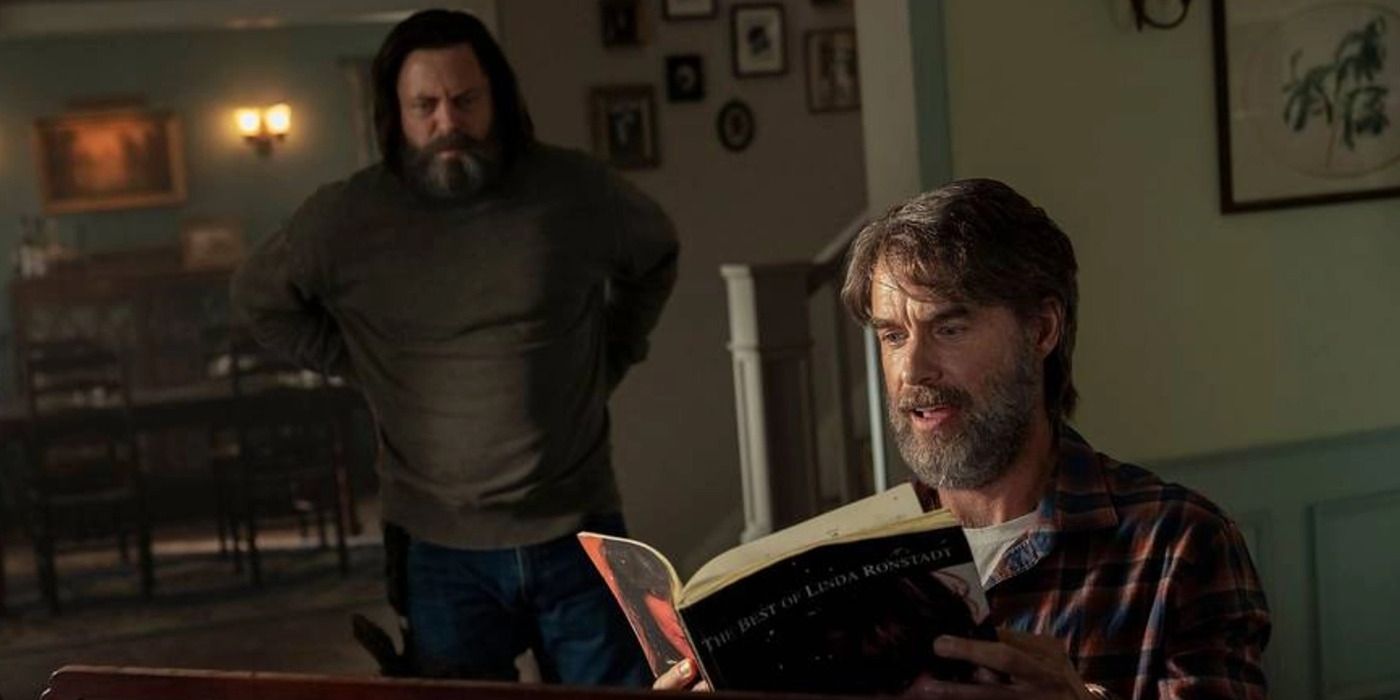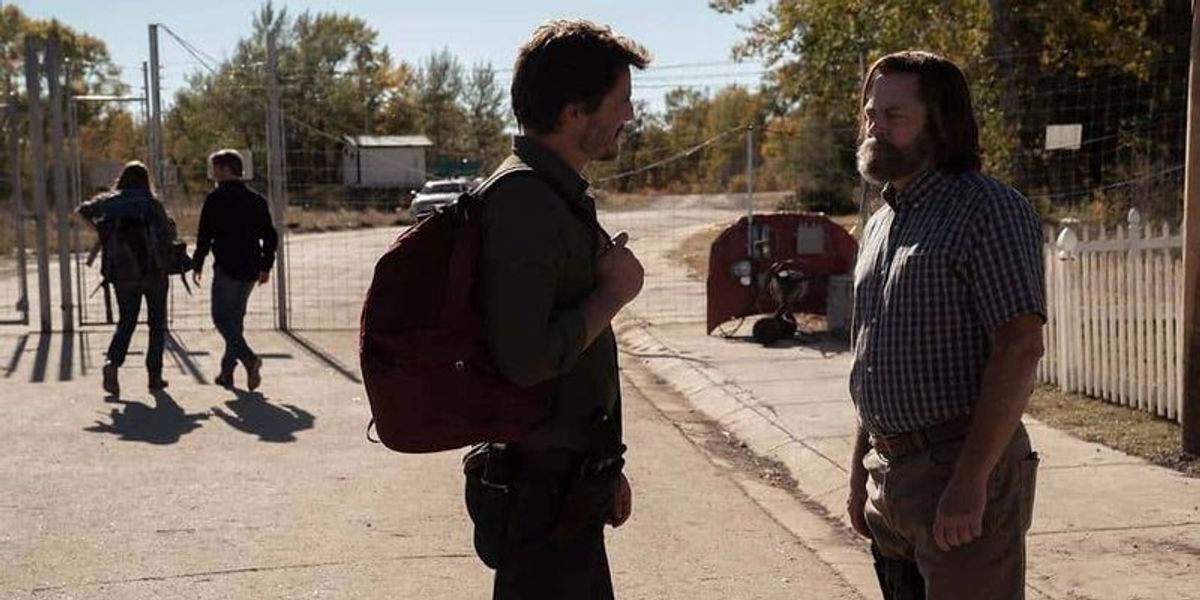After back-to-back episodes of apocalyptic action, The Last of Us moves into a heartbreaking domestic interlude for its third episode, titled "Long Long Time." Largely shifting from a different perspective than Joel and Ellie, the episode recounts a love story in the middle of civilization's collapse. A definite change of pace, "Long Long Time" leans hard into emotional poignancy, giving the audience a chance to breathe after two breakneck episodes while bringing the show's most surprisingly sentimental and bittersweet messaging yet.
Still reeling from the tragic loss of Joel's lover Tess in their escape from the infected that had overtaken Boston, Joel and Ellie resume their journey westward. As the two continue their long trek, the adventure of a lone wolf survivalist named Bill is revealed, from the opening days of the global outbreak to present-day, 20 years later. Though Bill is prepared to live alone and make the most of the post-apocalyptic status quo, he encounters a fellow survivor named Frank, and their meeting dramatically alters the trajectory of both men's lives forever.
After two episodes that went decidedly big with their world-building and ambitiously harrowing action set pieces, The Last of Us proves that it can go relatively quiet and deliberately paced. The episode itself runs scant on action, serving as something of a vignette within the larger story while introducing Nick Offerman's Bill. Sequestered away from the wider chaos elsewhere, the audience witnesses a 20-year window into Bill's life, playing out like a post-apocalyptic version of Up -- which is, of course, meant as a compliment.
If Anna Torv carried the preceding episode -- apt, given it was her character's tragic sendoff -- this episode is all Offerman and co-star Murray Bartlett as Frank. Seeing these two characters come together in a world that has largely lost all concept of hope is a revelation for The Last of Us and helps ground the story further in its own humanity. With Frank dead by the events of the video game, Bartlett has a relatively blank canvas to build the character from series co-creator Craig Mazin's script, and he does so beautifully, while Offerman delivers the best dramatic performance of his entire career.
This is all to say that the Bill/Frank interlude not only is a crucial part of Joel and Ellie's journey, with its importance revealed by the end of the episode, but also one that quietly expands The Last of Us beyond its video game source material. Post-apocalyptic contemporaries like The Walking Dead have a tendency to get hung up on all that nihilistic doom and gloom, while "Long Long Time" proves there are still glimmers of hope and something worth fighting for in this series. Amidst the running fights with the infected and the cruelty of humanity in the face of Armageddon, this episode provides that much-needed reminder of its humanistic merits.
After a raw and frenetic two-episode opener to the series, The Last of Us provides audiences with a much-appreciated standalone story that still brings the immense level of heartbreak fans have associated with the franchise. Offerman and Bartlett get viewers incredibly invested in their characters, with Offerman offering an enormous amount of vulnerability as Bill relearns to allow himself to have joy in his life. A reminder of why life is worth living and defending, The Last of Us sums up its mission statement within 75 minutes with this poignant side story.
Created by Craig Mazin and Neil Druckmann, The Last of Us airs Sundays at 9pm ET/PT on HBO, with episodes available to stream on HBO Max.



